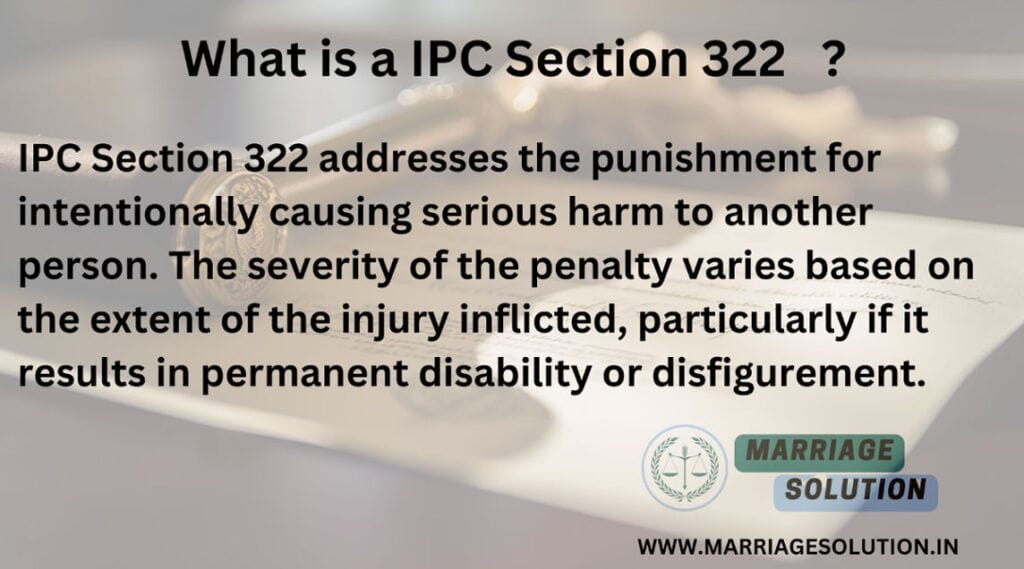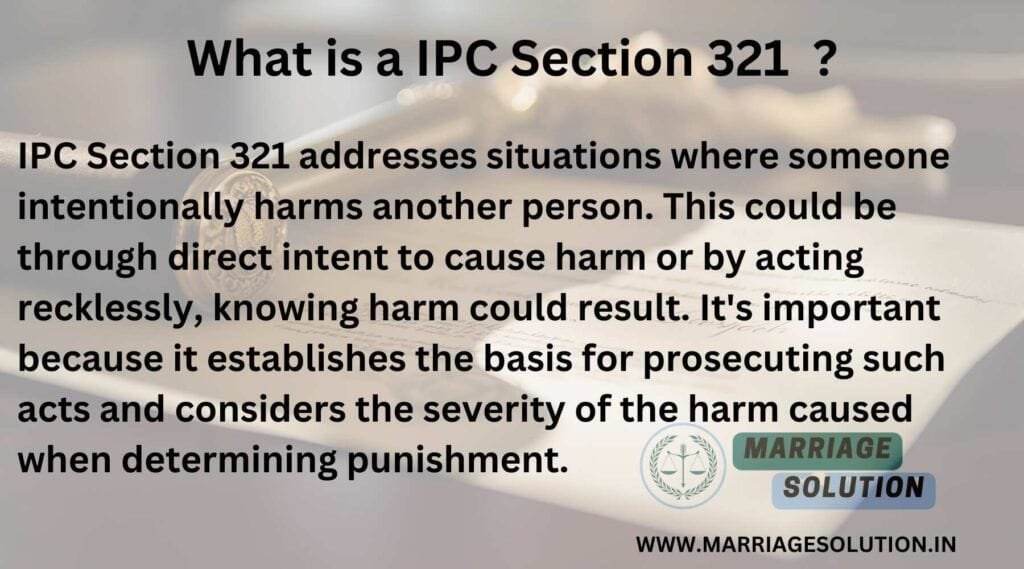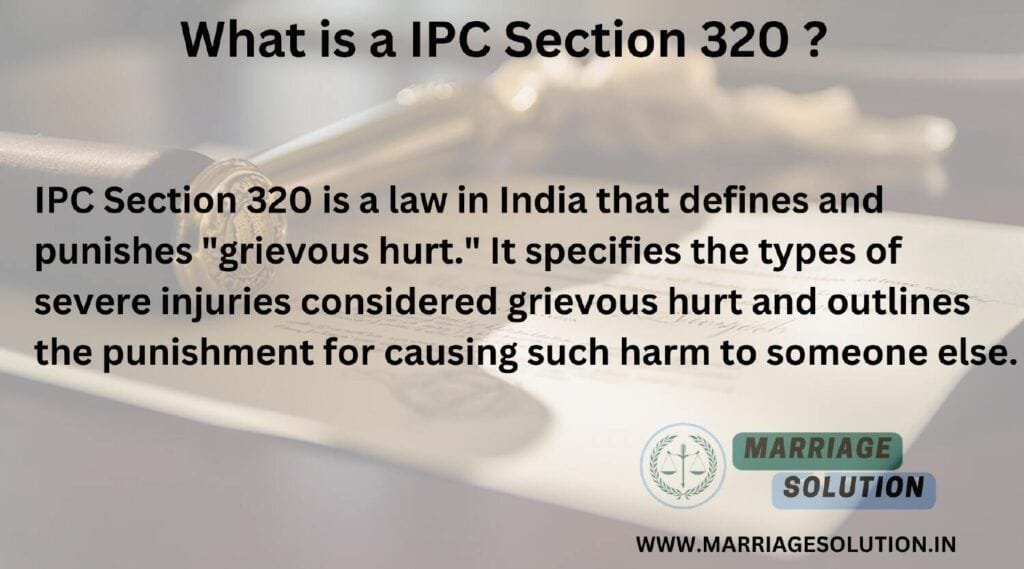IPC 322

Decoding IPC 322: Voluntarily Causing Grievous Hurt.
IPC section 321

IPC Section 321 addresses situations where someone intentionally harms another person. This could be through direct intent to cause harm or by acting recklessly, knowing harm could result. It’s important because it establishes the basis for prosecuting such acts and considers the severity of the harm caused when determining punishment.
IPC 319

The offense of causing “hurt” to another person is addressed under IPC Section 319, which defines the corresponding punishment as follows:
IPC 320

IPC Section 320 is a law in India that defines and punishes “grievous hurt.” It specifies the types of severe injuries considered grievous hurt and outlines the punishment for causing such harm to someone else.
IPC 318

IPC 318 deals with the act of secretly disposing of the body of a child, whether the child was born alive or not, with the intention of concealing the birth.
IPC 317

IPC Section 317 addresses circumstances involving the abandonment or exposure of a child under twelve years old by an individual entrusted with their care. The section pertains to situations where the responsible person abandons the child or exposes them in a manner that is likely to cause harm. This provision aims to safeguard the well-being of young children by holding those entrusted with their care accountable for actions that could potentially endanger their safety and welfare. Individuals found guilty under Section 317 may face legal consequences for such abandonment or exposure of a child.
IPC 316

IPC Section 316 pertains to the serious offense of causing the death of a quick unborn child, defined as a fetus capable of independent life outside the womb, through an act considered culpable homicide. To be deemed criminal, the act must be voluntary, amount to culpable homicide if committed against a born person, result in the death of a quick unborn child, and have a direct causal link to the child’s death. The punishment for this offense can involve imprisonment for a term up to ten years, with the type of imprisonment left to the court’s discretion, and a potential fine. This section serves to protect unborn children, deliver justice, and act as a deterrent against actions leading to the death of quick unborn children.
